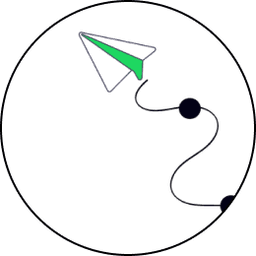Original Podcast Link:
[AI Breakdown] Summer AI Technical Roundup: a Latent Space x AI Breakdown crossover pod!
Podcast Summary
[0:00 - 11:51]
Agenda and Introduction:
An initial exchange of pleasantries with participants expressing their excitement about the session.
Recognition that the AI audience is diverse, comprising both technical experts in the field and those who are non-technical but keenly aware of the rapid developments in AI. There's a strong interest in understanding the recent trends and major events in AI over the past month, particularly in July.
Discussion of Code Interpreter from OpenAI:
Code Interpreter is initially presented as a chat GPT plugin but has functionalities closer to GPT 4.5. The significant difference it offers from previous models, like the chat GPT, makes it worth noting.
The launch of the Code Interpreter wasn't heavily publicized by OpenAI but has garnered attention for its capabilities, which seem to surpass those of GPT-4. Some speculate it's a step forward but not officially labeled to avoid potential controversies.
Enhancements in GPT 4.5:
Code Interpreter handles non-coding queries and diversifies ChatGPT's coding support.
While previous models struggled with direct mathematical questions due to how numbers are tokenized, the Code Interpreter overcomes this by focusing on code that can answer such questions.
It caters not just to developers but also non-technical individuals, offering solutions to problems akin to a junior developer or analyst.
The significant distinction between GPT 4.5 and its predecessors is its capability to handle coding tasks effectively.
Shift in AI Development Focus:
The shift from simply using larger datasets for training to focusing on inference time optimizations marks a change in AI development. This is believed to be the direction towards AGI (Artificial General Intelligence).
OpenAI's origins in gaming AI and the use of reinforcement learning environments hinted at this trend, where the AI would vary its inference time based on problem complexity.
GPT 4.5, particularly with the Code Interpreter, is viewed as an evolution that incorporates tools to enhance its capabilities. It is compared to humans evolving and then using tools to achieve tasks that were previously challenging.
Overall, the development and functionality of Code Interpreter represent a shift in AI capabilities, allowing the model to not just be bigger but smarter in its operations.





![Latent Space Podcast 8/16/23 [Summary] - The Mathematics of Training LLMs — with Quentin Anthony of Eleuther AI](/_next/image?url=https%3A%2F%2Fwww.datocms-assets.com%2F101962%2F1692324088-screenshot-2023-08-17-at-9-59-17-pm.png&w=3840&q=75)

![Latent Space Podcast 8/10/23 [Summary]: LLMs Everywhere: Running 70B models in browsers and iPhones using MLC — with Tianqi Chen of CMU / OctoML](/_next/image?url=https%3A%2F%2Fwww.datocms-assets.com%2F101962%2F1691894611-screenshot-2023-08-12-at-10-42-43-pm.png&w=3840&q=75)
![Latent Space Podcast 7/26/23 [Summary] FlashAttention 2: making Transformers 800% faster - Tri Dao of Together AI](/_next/image?url=https%3A%2F%2Fwww.datocms-assets.com%2F101962%2F1691543194-screenshot-2023-08-08-at-8-43-59-pm.png&w=3840&q=75)
![Latent Space Podcast 7/19/23 [Summary] - Llama 2: The New Open LLM SOTA (ft. Nathan Lambert, Matt Bornstein, Anton Troynikov, Russell Kaplan, Whole Mars Catalog et al.)](/_next/image?url=https%3A%2F%2Fwww.datocms-assets.com%2F101962%2F1691968295-screenshot-2023-08-13-at-7-11-06-pm.png&w=3840&q=75)
